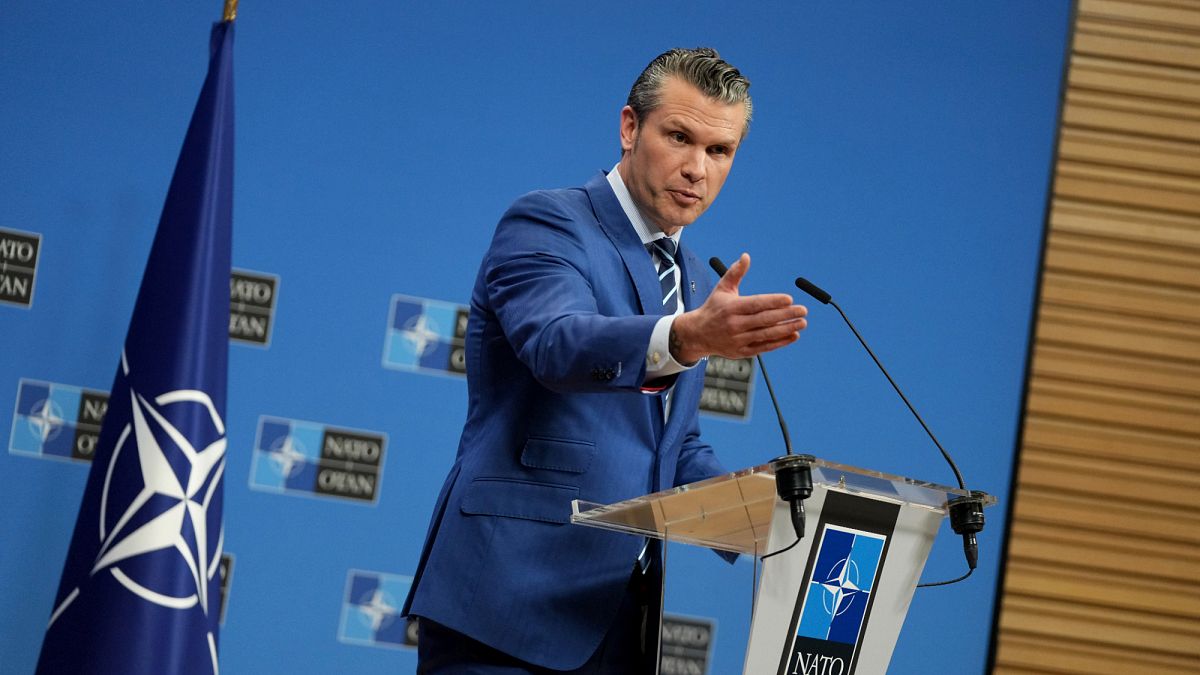Ahead of the German general election early next year, we look at what some of the biggest parties want to achieve in technology policy.
After German social-democrat Chancellor Olaf Scholz lost a confidence vote in parliament last week, national elections will likely be held on 23 February.
As the political parties are set to have their party programs approved by their members next month, Euronews has already examined some of the draft texts of the main actors and poll frontrunners.
Here is where the German parties stand on technology policy, including artificial intelligence, platform rules and digitalisation.
CDU: Digital Ministry
The centre-right CDU — which is leading the polls with some 33% of the votes according to national broadcaster ZDF — calls for a ministry for digitisation, which falls under the auspices of the Ministry of Transport at the moment.
The party, led by Friedrich Merz, also wants the German industry to use AI and cloud applications more broadly.
However, the program — already announced on 17 December — says that while those “future technologies need freedom, the state needs clear responsibilities." According to CDU, this requires a Federal Digital Ministry.
In addition, a digital account for dealing with authorities must make citizens' lives easier, similar to the steps taken on the EU level with the Digital Identity Wallet.
SPD: Independence from US and China
Outgoing Chancellor Scholz's centre-left SDP, third in the polls with some 15%, said that regulating digital platforms and artificial intelligence will “ensure that creation and technology are on an equal footing and that there are fair remuneration rules.”
“To achieve greater independence from Chinese and American platforms, we will examine the extent to which alternatives like European cultural producers can be created and promoted,” the draft program, set to be approved by the party in early January, said.
This echoes Brussels' calls for greater independence from other regions in the world. Finland’s Henna Virkkunen is in charge of tech sovereignty, security and democracy within the new European Commission, which took office on 1 December.
In addition, the text also said that the digitisation of the German public administration, which is a high priority for the SPD, needs to happen faster.
Greens: AI to reduce workload
The Greens, currently at 14% in the polls, say that modernisation and automation, including the use of AI, can reduce the workload for administrative processes and reduce the size of the federal ministerial administration.
“This is urgently needed in times of a shortage of skilled workers and vacancies,” the party's program says.
The party warns that Germany is behind in digitisation due to fragmentation of responsibilities and a lack of pooling of resources. It needs a more focused approach to expanding its digital infrastructure, developing European and international digital policy, and developing an open-source strategy.
“The key to accelerating Germany's digitisation lies in overcoming the limits of the different IT systems of companies, authorities and research institutions through interoperability,” the text said.
Brussels warned in July that Germany is behind in reaching some of the EU's connectivity targets, particularly those related to the digitalisation of public services and high-speed broadband connections.
AfD: Reverse the EU’s online platform rules
The far-right AfD, currently projected to become Germany’s second-biggest party with 17% of the vote, said it refuses to back the adoption of the Digital Services Act (DSA), an EU set of rules aimed at making online platforms more transparent while curbing disinformation. The party aims to reverse Germany's decision to implement the NetzDG law.
“A democracy does not need a 'Ministry of Truth' and must tolerate the opinions of its citizens — otherwise, it will become a dictatorship,” its program said.
AfD, led by Alice Weidel, warned against EU initiatives such as the Code of Practice on Disinformation, which are “being put in place to label legitimate opinions as disinformation and to censor them.”
“We demand the immediate cessation of all disinformation campaigns and the termination of all funding of non-state actors that influence or attempt to suppress free opinion formation. The funding of NGOs must be disclosed,” the text adds.

 3 months ago
32
3 months ago
32






 We deliver critical software at unparalleled value and speed to help your business thrive
We deliver critical software at unparalleled value and speed to help your business thrive






 English (US) ·
English (US) ·